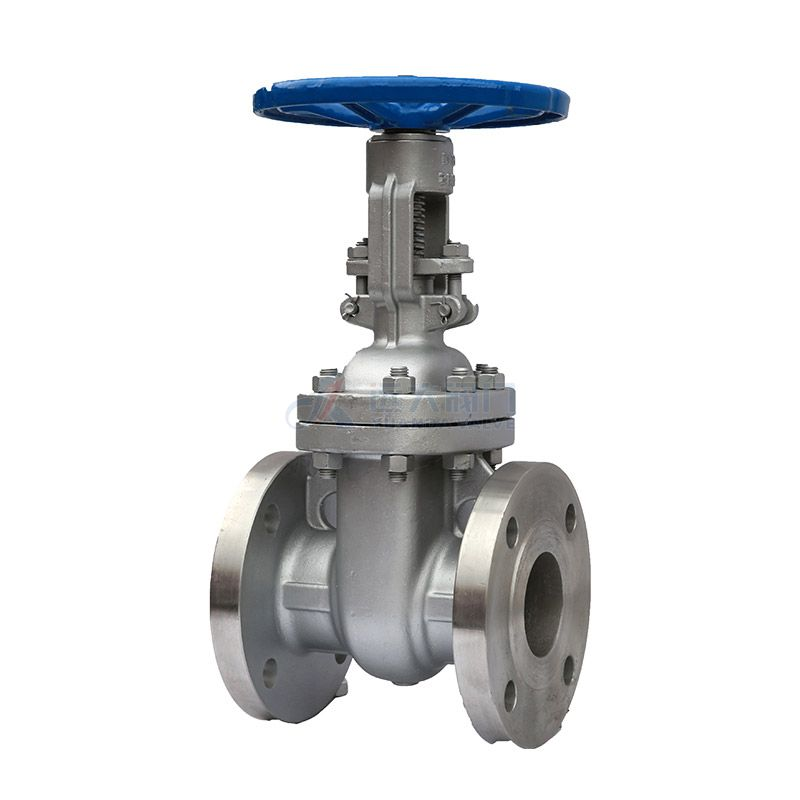In sewage treatment facilities, valves play a pivotal role in controlling fluid flow, isolating equipment, and ensuring the safe and efficient operation of processes. However, the harsh and corrosive environment of wastewater—laden with chemicals, solids, and microbes—poses significant challenges to valve durability and performance. Selecting the right corrosion-resistant valves is crucial to minimize maintenance, prevent failures, and extend the lifespan of treatment systems.
Sewage treatment systems are exposed to various corrosive agents:
1. Chemical Corrosion: Wastewater often contains acids, alkalis, and salts that can chemically attack valve materials.
2. Microbial-Induced Corrosion (MIC): Microorganisms, such as sulfate-reducing bacteria, produce hydrogen sulfide, which can oxidize to sulfuric acid, leading to biogenic sulfide corrosion.
3. Abrasive Wear: Suspended solids and grit can cause mechanical wear on valve surfaces.
Stainless steel valves, particularly grades 304 and 316, offer excellent corrosion resistance. Grade 316 contains molybdenum, enhancing its resistance to chlorides and making it suitable for environments with high salinity or chemical exposure.
Ductile iron valves are commonly used due to their strength and cost-effectiveness. When coated with epoxy or other protective layers, they exhibit improved resistance to corrosion and are suitable for various wastewater applications.
Valves made from plastics like PVC and CPVC are inherently resistant to corrosion and are lightweight and easy to install. They are ideal for certain chemical applications within sewage treatment but may have limitations regarding temperature and pressure.
Yuanda Valve Group offers a comprehensive range of valves designed to meet the rigorous demands of sewage treatment systems:
Stainless Steel Valves: Yuanda provides stainless steel valves suitable for controlling the flow of various media, including wastewater, ensuring durability and resistance to corrosion.
Epoxy-Coated Ductile Iron Valves: These valves combine the strength of ductile iron with the corrosion resistance of epoxy coatings, making them ideal for sewage applications.
Customized Solutions: Yuanda's R&D capabilities allow for the development of tailored valve solutions to meet specific requirements of sewage treatment facilities.

Yuanda's commitment to environmental protection is evident through its involvement in various sewage treatment projects:
Nanjing Jiangxinzhou Sewage Treatment Plant: Implemented Yuanda valves to enhance operational efficiency.
Dalian Chunliuhe Wastewater Treatment Plant: Utilized Yuanda's corrosion-resistant valves to ensure long-term reliability.
Yuhuan Ganjiang Wastewater Treatment Plant: Deployed customized valve solutions to meet specific treatment needs.
When selecting valves for sewage treatment systems, consider the following:
Material Compatibility: Ensure valve materials are compatible with the chemical composition of the wastewater.
Coating and Linings: Opt for valves with appropriate coatings or linings to enhance corrosion resistance.
Maintenance Requirements: Choose valves that are easy to maintain and have a proven track record of reliability.
Compliance with Standards: Ensure valves meet relevant industry standards and certifications.
Corrosion-resistant valves are essential components in the effective and sustainable operation of sewage treatment systems. By selecting the appropriate materials and leveraging the expertise of manufacturers like Yuanda Valve Group, facilities can ensure longevity, reduce maintenance costs, and uphold environmental standards.
For more information on Yuanda Valve Group's products and solutions, visit their official website: https://www.yuandavalves.com/